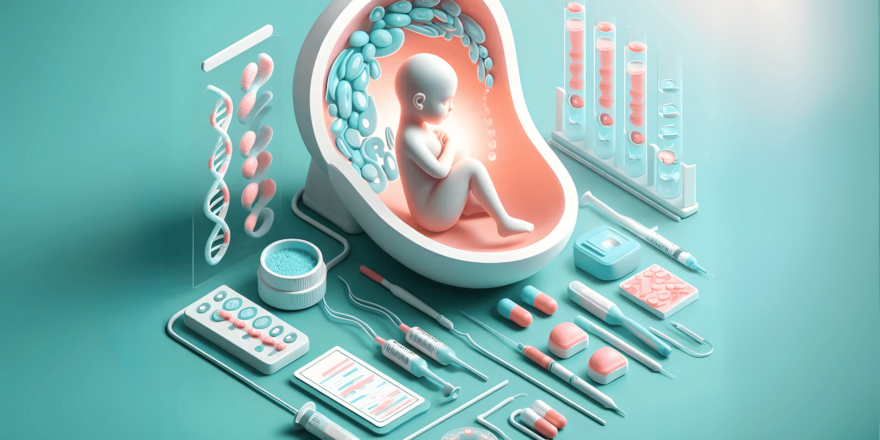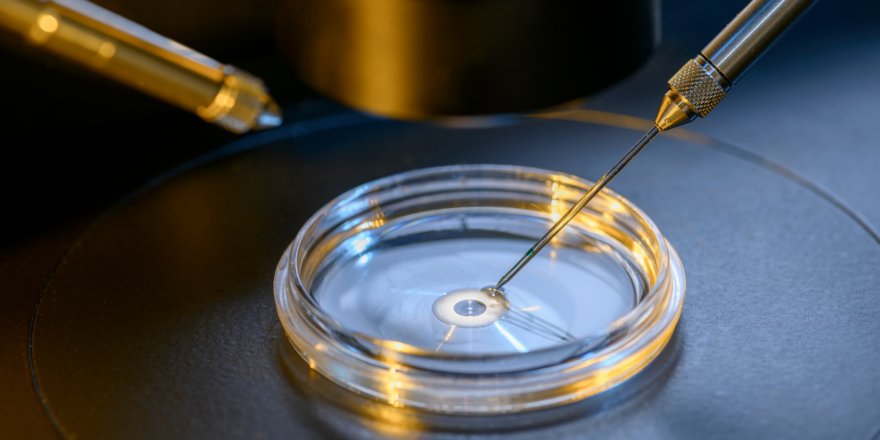Embarking on the journey of In vitro fertilization (IVF) can be both exciting and overwhelming. One of the critical components that can enhance the success of this journey is Preimplantation Genetic Testing (PGT). At ANKURAM IVF, we utilize advanced genetic screening techniques, including Preimplantation Genetic Testing for Aneuploidies (PGT-A), Monogenic Disorders (PGT-M), and Structural Rearrangements (PGT-SR). These tests are designed to identify chromosomal abnormalities and genetic disorders, thereby increasing the chances of a successful pregnancy and a healthy baby. In this comprehensive guide, we delve into the details of each type of PGT, explaining their significance and the benefits they offer to prospective parents.
Pre-Implantation Genetic Testing at ANKURAM IVF
At ANKURAM IVF, we offer advanced genetic testing to enhance the success rates of IVF treatments and ensure healthier pregnancies. Our genetic testing services include Pre-Implantation Genetic Testing for Aneuploidies (PGT-A), Monogenic Disorders (PGT-M), and Structural Rearrangements (PGT-SR).
Pre-Implantation Genetic Testing for Aneuploidies (PGT-A) is a vital genetic test conducted on blastocyst embryos to detect numerical chromosomal abnormalities (aneuploidies) during IVF. Here’s how it works:
- Biopsy Process: A small biopsy is taken from the outer layer (trophectoderm) of a blastocyst embryo.
- Analysis: The biopsy is sent for analysis to identify embryos with abnormal chromosomal numbers.
- Results: The results indicate whether the embryo is chromosomally “euploid” (normal) or “aneuploid” (abnormal).
PGT-A helps in selecting embryos with higher implantation potential, thereby increasing pregnancy rates and reducing miscarriage rates. This testing is particularly beneficial for:
- Patients of advanced maternal age
- Those with repeated IVF failures
- Couples experiencing recurrent pregnancy losses
By identifying and selecting chromosomally normal embryos, PGT-A significantly improves the chances of a successful pregnancy.
Pre-Implantation Genetic Testing for Monogenic Disorders (PGT-M)
Pre-Implantation Genetic Testing for Monogenic Disorders (PGT-M) is designed for couples at risk of passing on inherited genetic conditions. This testing can identify over 300 single-gene disorders such as:
- Thalassemia
- Sickle Cell Anemia
- Muscular Dystrophy
The PGT-M process involves:
- Embryo Biopsy: A biopsy is performed on the embryos during IVF.
- Genetic Analysis: The biopsied cells are analyzed to detect specific genetic mutations responsible for monogenic disorders.
PGT-M allows for the selection of unaffected embryos, thereby significantly reducing the risk of transmitting genetic conditions to the offspring. This testing is crucial for couples with a known history of genetic disorders.
Pre-Implantation Genetic Testing for Structural Rearrangements (PGT-SR)
Pre-Implantation Genetic Testing for Structural Rearrangements (PGT-SR) is targeted at couples with known structural chromosomal rearrangements, as identified by a karyotype test. Structural rearrangements can include:
- Translocations
- Inversions
The PGT-SR process involves:
- Embryo Analysis: Embryos are analyzed to detect balanced structural rearrangements.
- Selection: Embryos with balanced chromosomal structures are selected, increasing the chances of a healthy pregnancy.
PGT-SR is particularly beneficial for couples who have experienced recurrent pregnancy losses due to chromosomal abnormalities.
Why Choose ANKURAM IVF for Genetic Testing?
At ANKURAM IVF, we are committed to providing comprehensive and advanced genetic testing options to support your journey to parenthood. Our experienced team of infertility specialists utilizes state-of-the-art technology to ensure the highest standards of care and accuracy. By integrating these genetic tests into our IVF process, we aim to increase your chances of a successful pregnancy and a healthy baby.
For more information on how genetic testing can benefit your IVF treatment, contact ANKURAM IVF today. Our team is here to guide you through every step of your fertility journey.
References and resources:
Ministry of Health and Family Welfare, Government of India
Indian Council of Medical Research (ICMR)
- National Guidelines for Accreditation, Supervision, and Regulation of ART Clinics in India
- Ethical Guidelines for Biomedical Research on Human Participants
Department of Biotechnology, Government of India
National Institute for Research in Reproductive Health (NIRRH)
Central Drugs Standard Control Organization (CDSCO)





3 thoughts on “PGT (Preimplantation Genetic Testing): Comprehensive Guide to PGT in IVF”
Very interesting points you have mentioned, thank you for putting up.
Hey, I’m Jack. Your blog is a game-changer! The content is insightful, well-researched, and always relevant. Great job!
Baddiehub This is my first time pay a quick visit at here and i am really happy to read everthing at one place